- Home
- Bobby Akart
Nuclear Winter First Strike
Nuclear Winter First Strike Read online
Nuclear Winter I
First Strike
Bobby Akart
Thank You
Thank you for reading FIRST STRIKE, book one in the Nuclear Winter Series by Author Bobby Akart.
Join Bobby Akart’s mailing list to learn about upcoming releases, deals, contests, and appearances. Follow this link to:
BobbyAkart.com
Or, visit his dedicated feature page on Amazon at
Amazon.com/BobbyAkart
PRAISE FOR AUTHOR BOBBY AKART
“Bobby Akart is the master of nail biting, edge of your seat fiction based on fact.”
~ Amazon Review of New Madrid Earthquake
“Author Bobby Akart has the acumen to be able to weave fact-based fiction into a very believable story full of intrigue, suspense, and action.”
~ Amazon Review of Odessa Rising
“He takes you on a ride that becomes a roller-coaster.”
~ Amazon Review of Odessa Reborn
“As with any of the best novels, this book really captures your attention and makes it hard to put down at the end of the day.”
~ Early review of Nuclear Winter First Strike
“There are no accolades I can give Bobby Akart that haven’t been said numerous times. His fact-based, heavily researched stories are the stuff of nightmares. He is truly one of the greatest authors I have ever read.”
~ Amazon Review of Virus Hunters 2
“Another phenomenal story from THE master story teller of our time.”
~ Amazon Review of Asteroid Destruction
“Only Akart can weave a story that begins so calm, so normal and before you know it, you are at the end of the book with your pulse pounding in your chest and your mind screaming for more.”
~ Amazon Review of Geostorm The Shift
Nuclear Winter I
First Strike
by
Bobby Akart
Other Works by Amazon Charts Top 25 Author Bobby Akart
Nuclear Winter
First Strike
Armageddon
Whiteout
Desolation
New Madrid (a standalone, disaster thriller)
Odessa (a Gunner Fox trilogy)
Odessa Reborn
Odessa Rising
Odessa Strikes
The Virus Hunters
Virus Hunters I
Virus Hunters II
Virus Hunters III
The Geostorm Series
The Shift
The Pulse
The Collapse
The Flood
The Tempest
The Pioneers
The Asteroid Series (A Gunner Fox trilogy)
Discovery
Diversion
Destruction
The Doomsday Series
Apocalypse
Haven
Anarchy
Minutemen
Civil War
The Yellowstone Series
Hellfire
Inferno
Fallout
Survival
The Lone Star Series
Axis of Evil
Beyond Borders
Lines in the Sand
Texas Strong
Fifth Column
Suicide Six
The Pandemic Series
Beginnings
The Innocents
Level 6
Quietus
The Blackout Series
36 Hours
Zero Hour
Turning Point
Shiloh Ranch
Hornet’s Nest
Devil’s Homecoming
The Boston Brahmin Series
The Loyal Nine
Cyber Attack
Martial Law
False Flag
The Mechanics
Choose Freedom
Patriot’s Farewell (standalone novel)
Black Friday (standalone novel)
Seeds of Liberty (Companion Guide)
The Prepping for Tomorrow Series
Cyber Warfare
EMP: Electromagnetic Pulse
Economic Collapse
Copyright Information
This is a work of fiction. Names, characters, organizations, places, events, and incidents are either the products of the author’s imagination or are used fictitiously. Any resemblance to actual persons, living or dead, or actual events is purely coincidental.
© 2021 Crown Publishers Inc. All rights reserved. Except as permitted under the U.S. Copyright Act of 1976, no part of this book may be reproduced, distributed or transmitted in any form or by any means including, but not limited to electronic, mechanical, photocopying, recording, or otherwise, or stored in a database or retrieval system, without the express written permission of Crown Publishers Inc.
Acknowledgments
Creating a novel that is both informative and entertaining requires a tremendous team effort. Writing is the easy part.
For their efforts in making the Nuclear Winter series a reality, I would like to thank Hristo Argirov Kovatliev for his incredible artistic talents in creating my cover art. He and Dani collaborate (and conspire) to create the most incredible cover art in the publishing business. A huge hug of appreciation goes out to Pauline Nolet, the Professor, for her editorial prowess and patience in correcting this writer’s same tics after fifty-plus novels. Thank you, Drew Avera, a United States Navy veteran, who has brought his talented formatting skills from a writer’s perspective to create multiple formats for reading my novels. Welcome back Kevin Pierce, the beloved voice of the apocalypse, who will bring my words to life in audio format.
Now, for the serious stuff. Accurately portraying the aftermath of nuclear war required countless hours of never-ending research and interviews of some of the brightest minds in the world of planetary science.
Once again, as I immersed myself in the science and history, source material and research flooded my inbox from around the globe. Without the assistance of many individuals and organizations, this story could not be told. Please allow me a moment to acknowledge a few of those individuals whom, without their tireless efforts and patience, the Nuclear Winter series could not have been written.
Many thanks to the preeminent researchers and engineers at the National Center for Atmospheric Research in Boulder, Colorado. Between responses to my inquiries and the volumes of scientific publications provided, I was able to grasp the catastrophic effect a regional nuclear war would have upon the Earth and its atmosphere. They impressed upon me the danger of inundating our air with the results of these massive nuclear detonations. It would result in a climatic event akin to the eruption of the Yellowstone Supervolcano.
A shout-out must go to Brian Toon, professor of atmospheric and oceanic sciences at the University of Colorado – Boulder. He has been a tireless advocate warning all who’ll listen of the consequences of nuclear winter. This quote had a profound effect on me and led to the writing of the Nuclear Winter series—It could potentially end global civilization as we know it. In other words, TEOTWAWKI.
At Rutgers University, Distinguished Professor and acclaimed climatologist, Alan Robock, has been studying the potential threat of nuclear winter with a particular focus on the human impact. The incredibly fast cooling of the planet would trigger global famine and mass starvation. His models of fires and firestorms in the aftermath of a nuclear war provided me detailed estimates of the extent of wildfires as well as the timeframes associated with the smoke and soot lofted into the atmosphere.
Now, to the special friends and acquaintances who helped make my characters realistic. Admittedly, my exposure to teenagers is non-existent. Yet, from time-to-time, I have teen characters who speak a different langu
age, sort of. In order to add a sense of realism to their dialogue, I call upon a number of resources to enlighten me on their own unique vocabulary.
Thank you to Pam and Tim Johnson who reached out to their teenage grandson, Simon Andrews. He’s credited with a number of phrases in the Nuclear Winter series including—Yeet! Dear reader, this interesting term will be explained within First Strike, book one.
Thank you to Jessica Devenny, referred to me via Pam Johnson and her bestie, Betty. Jessica’s sons, Jacob and Parker, also helped to fill my teenspeak dictionary.
Also, Dani’s followers on Instagram were up to the task. Instagram is one of the few social media networks where the vast majority of your interactions are positive compared to Facebook and the downright nasty Twitter platform. When called upon, hundreds of terms and phrases were offered. Thanks to you all!
The cigar selections in Nuclear Winter First Strike were suggested by my friend Brad Levy. Brad has read all of my novels, twice, in most cases. He always looks forward to his day on the lanai, enjoying a fine cigar and a good book. Thank you, my friend!
Finally, as always, a special thank you to my team of loyal friends who’ve always supported my work and provided me valuable insight from a reader’s perspective—Denise Keef, Joe Carey, Shirley Nicholson, Bennita Barnett, Karl Hughey, and Brian Alderman.
For the Nuclear Winter series, several avid readers volunteered to make my writing more better: Martin McDonell, Cody McDonell, Leslie Bryant, Tim Coppess, Caryl Lynne Honea, Mike Neubecker, Pete Steffens, and Kelly Trone.
Thanks, y’all, and Choose Freedom!
About the Author, Bobby Akart
Author Bobby Akart has been ranked by Amazon as #25 on the Amazon Charts list of most popular, bestselling authors. He has achieved recognition as the #1 bestselling Horror Author, #1 bestselling Science Fiction Author, #5 bestselling Action & Adventure Author, #7 bestselling Historical Fiction Author and #10 on Amazon’s bestselling Thriller Author list.
Mr. Akart has delivered up-all-night thrillers to readers in 245 countries and territories worldwide. He has sold over one million books in all formats, which includes over forty international bestsellers, in nearly fifty fiction and nonfiction genres.
His novel Yellowstone: Hellfire reached the Top 25 on the Amazon bestsellers list and earned him multiple Kindle All-Star awards for most pages read in a month and most pages read as an author. The Yellowstone series vaulted him to the #25 bestselling author on Amazon Charts, and the #1 bestselling science fiction author.
Since its release in November 2020, his standalone novel, New Madrid Earthquake, has been ranked #1 on Amazon Charts in multiple countries as a natural disaster thriller.
Mr. Akart is a graduate of the University of Tennessee after pursuing a dual major in economics and political science. He went on to obtain his master’s degree in business administration and his doctorate degree in law at Tennessee.
Mr. Akart has provided his readers a diverse range of topics that are both informative and entertaining. His attention to detail and impeccable research has allowed him to capture the imagination of his readers through his fictional works and bring them valuable knowledge through his nonfiction books.
SIGN UP for Bobby Akart’s mailing list to learn of special offers, view bonus content, and be the first to receive news about new releases.
Visit www.BobbyAkart.com for details.
Dedications
With the love and support of my wife, Dani, together with the unconditional love of Bullie and Boom, the princesses of the palace, I’m able to tell you these stories. It would be impossible for me to write without them in my heart.
Freedom and security are precious gifts that we, as Americans, should never take for granted. I would like to thank the men and women, past and present, of the United States Armed Forces for willingly making sacrifices each day to provide us that freedom and security. Also, a not of thanks to their families who endure countless sleepless nights as their loved ones are deployed around he world.
They are the sheepdogs who live to protect the flock. They bravely and unselfishly confront the wolves who threaten our country, our freedoms, and their brothers in arms from those who would bring destruction to our door.
Choose Freedom!
Contents
Author’s Introduction
Real-World News Excerpts
Nuclear Winter I
Prologue
Part I
Chapter 1
Chapter 2
Chapter 3
Chapter 4
Chapter 5
Chapter 6
Chapter 7
Part II
Chapter 8
Chapter 9
Chapter 10
Chapter 11
Chapter 12
Chapter 13
Chapter 14
Part III
Chapter 15
Chapter 16
Chapter 17
Chapter 18
Chapter 19
Chapter 20
Chapter 21
Part IV
Chapter 22
Chapter 23
Chapter 24
Chapter 25
Chapter 26
Chapter 27
Part V
Chapter 28
Chapter 29
Chapter 30
Chapter 31
Chapter 32
Chapter 33
Chapter 34
Chapter 35
Chapter 36
Chapter 37
Chapter 38
Chapter 39
Chapter 40
Chapter 41
Part VI
Chapter 42
Chapter 43
Chapter 44
Chapter 45
Part VII
Chapter 46
Chapter 47
Chapter 48
Chapter 49
Chapter 50
THANK YOU FOR READING NUCLEAR WINTER: FIRST STRIKE!
What’s coming next from Bobby Akart?
Other Works by Amazon Charts Top 25 Author Bobby Akart
Author’s Introduction
February, 2021
Since scientific discoveries in the late 1930s made nuclear weapons a possibility, the world began to realize they posed an enormous threat to humanity. In 1942, with the secretive research effort in the U.S. known as the Manhattan Project, a race toward nuclear supremacy began. Since their very first use in World War II, different leaders and organizations have been trying to prevent proliferation to additional countries. Despite their efforts, more nation-states than ever before have obtained nuclear weapons.
Following pioneering research from scientists in the early 1980s, the world was introduced to the concept of nuclear winter. Researchers had known that a large nuclear war could cause severe global environmental effects, including dramatic cooling of surface temperatures, declines in precipitation, and increased ultraviolet radiation.
The term nuclear winter was coined specifically to refer to atmospheric cooling that resulted in winter-like temperatures occurring year-round. Regardless of whether extreme cold temperatures were reached, there would be severe consequences for humanity. But how severe would those consequences be? And what should the world be doing about it?
To the first question, the short answer is nobody knows with absolute certainty. The total human impacts of nuclear winter are both uncertain and under-studied. The aftereffects of the twin atomic bombs dropped on Japan to end World War II were not analyzed in depth. More research on the impacts would be very helpful, but treaties have limited nuclear weapons testing. Therefore research, other than theoretical conclusions, has been limited.
As to the question of what the world should be doing about it, all nations agree non-proliferation is a start. However, there are still more than sufficient nuclear weapons capable of being launched to bring the world to the brink of Armageddon.
Today, nuclear winter is not a hot topic among the world’
s leaders. When the Cold War ended, so did attention to the catastrophic threat of nuclear winter. That started to change in 2007 with a new line of nuclear winter research that used advanced climate models developed for the study of global warming.
Relative to the 1980s research, the new research found that the smoke from nuclear firestorms would travel higher into the atmosphere causing nuclear winter to last longer than previously thought. This research also found dangerous effects from smaller nuclear exchanges, such as an India-Pakistan nuclear war detonating only one hundred total nuclear warheads.

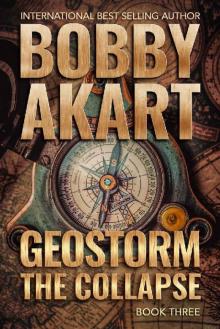 Geostorm The Collapse: A Post Apocalyptic EMP Survival Thriller (The Geostorm Series Book 3)
Geostorm The Collapse: A Post Apocalyptic EMP Survival Thriller (The Geostorm Series Book 3)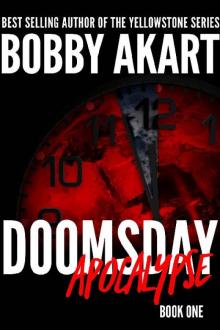 Doomsday Apocalypse
Doomsday Apocalypse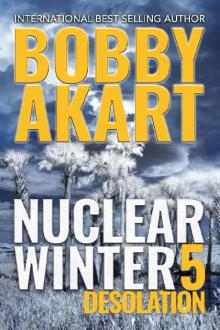 Nuclear Winter Desolation: Post Apocalyptic Survival Thriller (Nuclear Winter Series Book 5)
Nuclear Winter Desolation: Post Apocalyptic Survival Thriller (Nuclear Winter Series Book 5)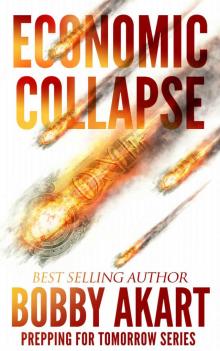 Economic Collapse (Prepping for Tomorrow Book 2)
Economic Collapse (Prepping for Tomorrow Book 2)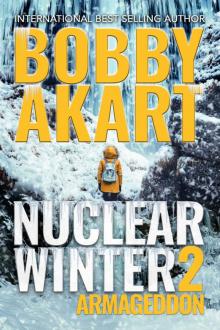 Nuclear Winter Armageddon
Nuclear Winter Armageddon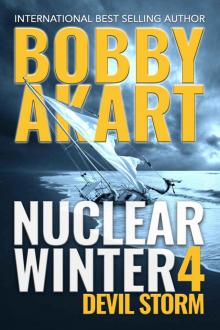 Nuclear Winter Devil Storm
Nuclear Winter Devil Storm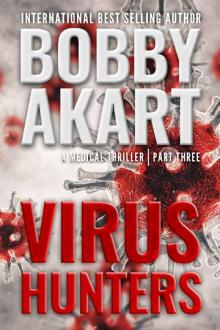 Virus Hunters 3: A Medical Thriller
Virus Hunters 3: A Medical Thriller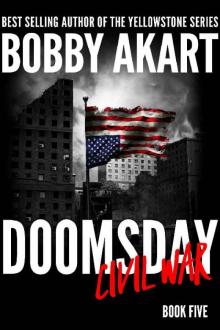 Doomsday Civil War: A Post-Apocalyptic Survival Thriller (The Doomsday Series Book 5)
Doomsday Civil War: A Post-Apocalyptic Survival Thriller (The Doomsday Series Book 5)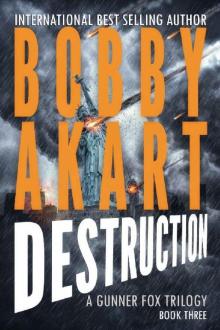 Asteroid Destruction
Asteroid Destruction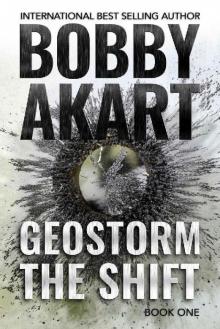 Geostorm the Shift
Geostorm the Shift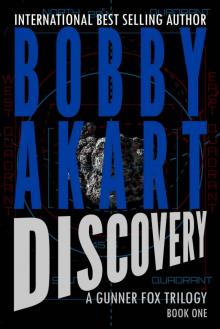 Asteroid Discovery
Asteroid Discovery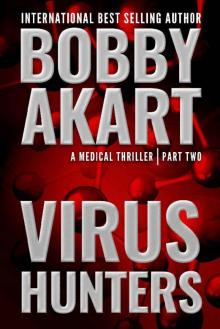 Virus Hunters 2: A Medical Thriller
Virus Hunters 2: A Medical Thriller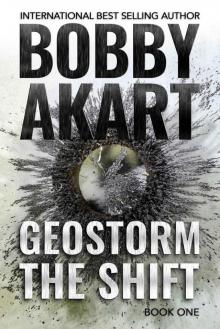 Geostorm The Shift: A Post-Apocalyptic EMP Survival Thriller (The Geostorm Series Book 1)
Geostorm The Shift: A Post-Apocalyptic EMP Survival Thriller (The Geostorm Series Book 1)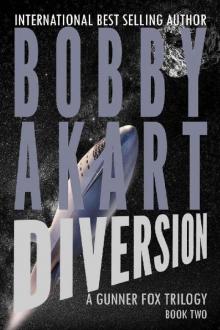 Asteroid Diversion
Asteroid Diversion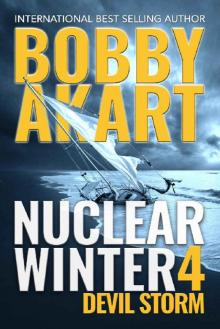 Nuclear Winter Devil Storm: Post Apocalyptic Survival Thriller (Nuclear Winter Series Book 4)
Nuclear Winter Devil Storm: Post Apocalyptic Survival Thriller (Nuclear Winter Series Book 4)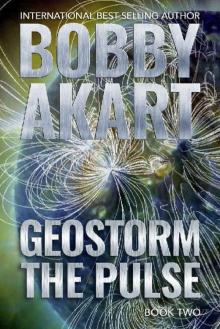 Geostorm The Pulse: A Post Apocalyptic EMP Survival Thriller (The Geostorm Series Book 2)
Geostorm The Pulse: A Post Apocalyptic EMP Survival Thriller (The Geostorm Series Book 2)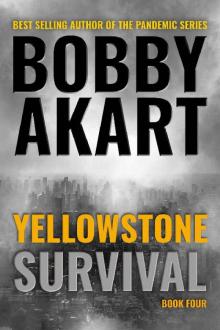 Yellowstone: Survival: A Post-Apocalyptic Survival Thriller (The Yellowstone Series Book 4)
Yellowstone: Survival: A Post-Apocalyptic Survival Thriller (The Yellowstone Series Book 4)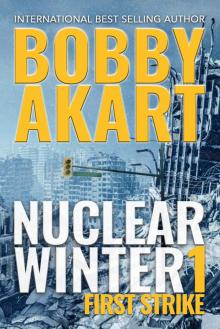 Nuclear Winter First Strike: Post-Apocalyptic Survival Thriller
Nuclear Winter First Strike: Post-Apocalyptic Survival Thriller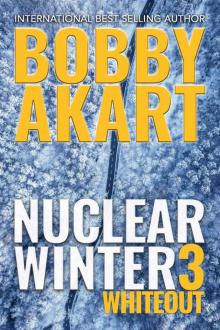 Nuclear Winter Whiteout
Nuclear Winter Whiteout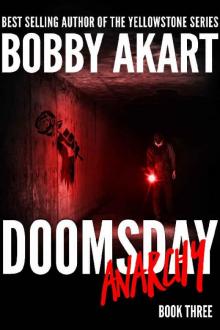 Doomsday Anarchy
Doomsday Anarchy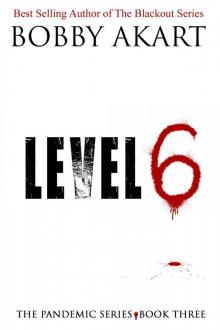 Pandemic: Level 6: A Post Apocalyptic Medical Thriller Fiction Series (The Pandemic Series Book 3)
Pandemic: Level 6: A Post Apocalyptic Medical Thriller Fiction Series (The Pandemic Series Book 3) Martial Law
Martial Law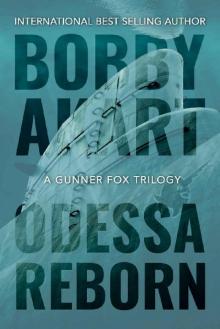 Odessa Reborn: A Terrorism Thriller (Gunner Fox Book 4)
Odessa Reborn: A Terrorism Thriller (Gunner Fox Book 4)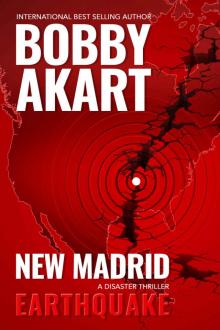 New Madrid Earthquake
New Madrid Earthquake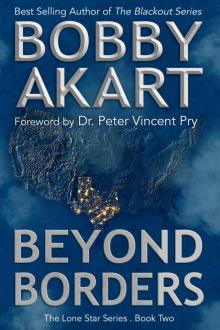 Beyond Borders: Post Apocalyptic EMP Survival Fiction (The Lone Star Series Book 2)
Beyond Borders: Post Apocalyptic EMP Survival Fiction (The Lone Star Series Book 2)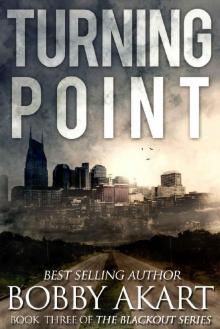 The Blackout Series (Book 3): Turning Point
The Blackout Series (Book 3): Turning Point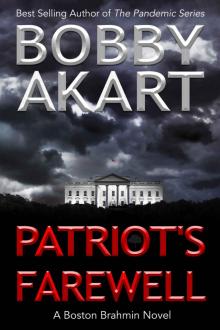 Patriot's Farewell: A Political Thriller Fiction Series (Boston Brahmin Political Thrillers Book 7)
Patriot's Farewell: A Political Thriller Fiction Series (Boston Brahmin Political Thrillers Book 7)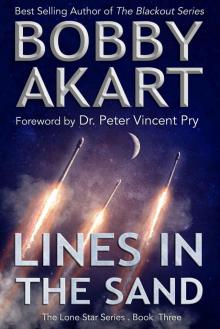 Lines in the Sand_Post Apocalyptic EMP Survival Fiction
Lines in the Sand_Post Apocalyptic EMP Survival Fiction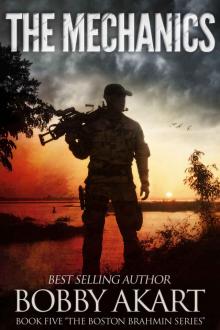 The Mechanics: A Post-Apocalyptic Fiction Series
The Mechanics: A Post-Apocalyptic Fiction Series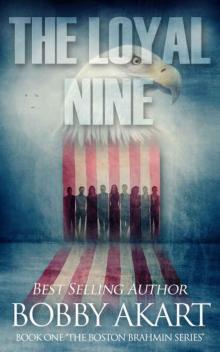 The Loyal Nine
The Loyal Nine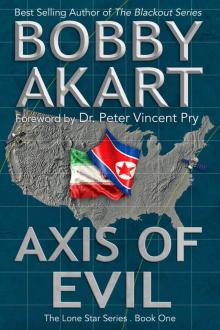 Axis of Evil
Axis of Evil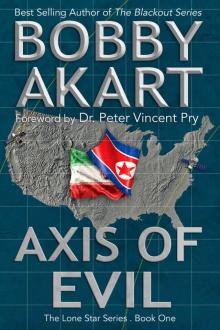 Axis of Evil: Post Apocalyptic EMP Survival Fiction (The Lone Star Series Book 1)
Axis of Evil: Post Apocalyptic EMP Survival Fiction (The Lone Star Series Book 1)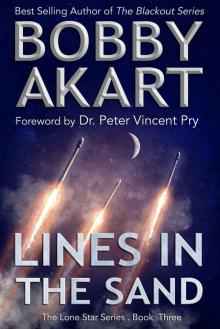 Lines in the Sand: Post Apocalyptic EMP Survival Fiction (The Lone Star Series Book 3)
Lines in the Sand: Post Apocalyptic EMP Survival Fiction (The Lone Star Series Book 3)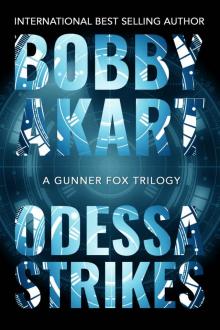 Odessa Strikes
Odessa Strikes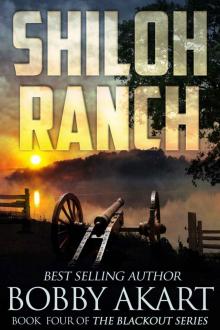 The Blackout Series (Book 4): Shiloh Ranch
The Blackout Series (Book 4): Shiloh Ranch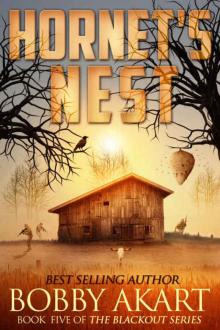 Hornet's Nest: A Post Apocalyptic EMP Survival Fiction Series (The Blackout Series Book 5)
Hornet's Nest: A Post Apocalyptic EMP Survival Fiction Series (The Blackout Series Book 5)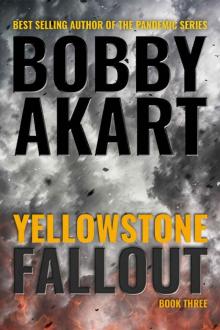 Yellowstone: Fallout: A Post-Apocalyptic Survival Thriller (The Yellowstone Series Book 3)
Yellowstone: Fallout: A Post-Apocalyptic Survival Thriller (The Yellowstone Series Book 3)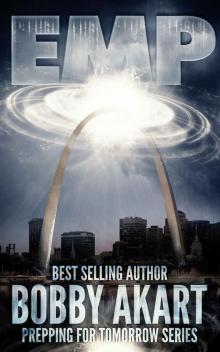 Electromagnetic Pulse
Electromagnetic Pulse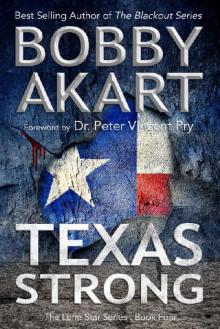 Texas Strong: Post Apocalyptic EMP Survival Fiction (The Lone Star Series Book 4)
Texas Strong: Post Apocalyptic EMP Survival Fiction (The Lone Star Series Book 4)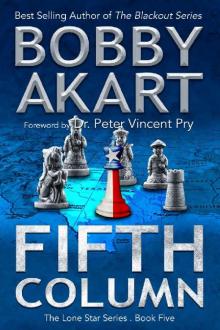 Fifth Column_Post Apocalyptic EMP Survival Fiction
Fifth Column_Post Apocalyptic EMP Survival Fiction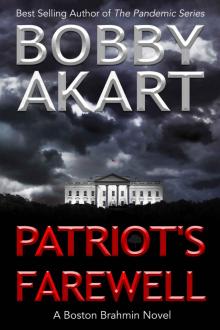 Patriot's Farewell
Patriot's Farewell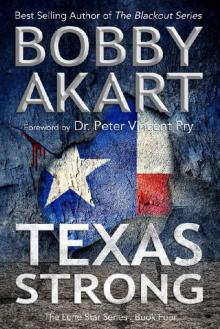 Texas Strong_Post Apocalyptic EMP Survival Fiction
Texas Strong_Post Apocalyptic EMP Survival Fiction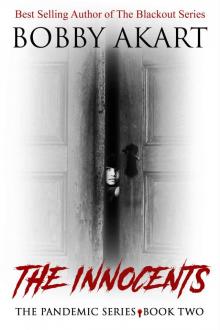 Pandemic: The Innocents: A Post-Apocalyptic Medical Thriller Fiction Series (The Pandemic Series Book 2)
Pandemic: The Innocents: A Post-Apocalyptic Medical Thriller Fiction Series (The Pandemic Series Book 2)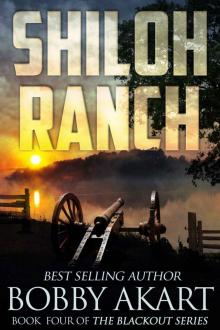 Shiloh Ranch: A Post Apocalyptic EMP Survival Fiction Series (The Blackout Series Book 4)
Shiloh Ranch: A Post Apocalyptic EMP Survival Fiction Series (The Blackout Series Book 4)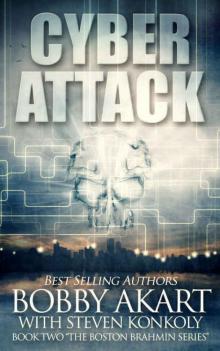 Cyber Attack
Cyber Attack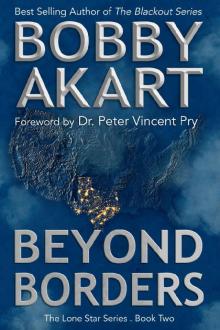 Beyond Borders
Beyond Borders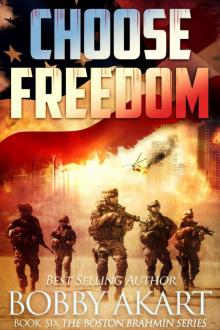 Choose Freedom: A Post-Apocalyptic Fiction Series (The Boston Brahmin Book 6)
Choose Freedom: A Post-Apocalyptic Fiction Series (The Boston Brahmin Book 6)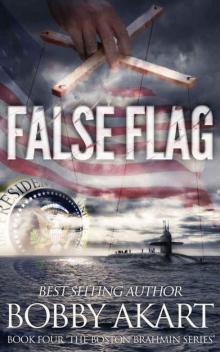 False Flag
False Flag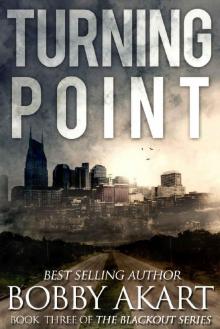 Turning Point: A Post Apocalyptic EMP Survival Fiction Series (The Blackout Series Book 3)
Turning Point: A Post Apocalyptic EMP Survival Fiction Series (The Blackout Series Book 3)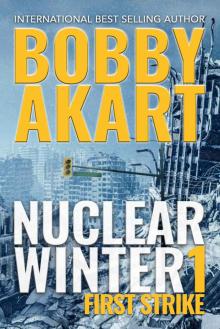 Nuclear Winter First Strike
Nuclear Winter First Strike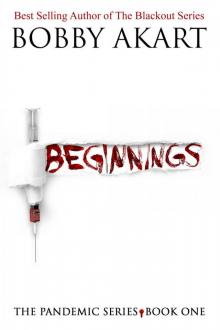 Pandemic: Beginnings: A Post-Apocalyptic Medical Thriller Fiction Series (The Pandemic Series Book 1)
Pandemic: Beginnings: A Post-Apocalyptic Medical Thriller Fiction Series (The Pandemic Series Book 1)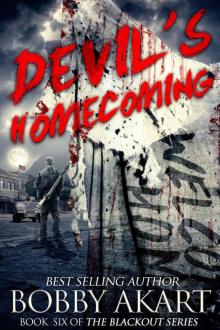 Devil's Homecoming: A Post Apocalyptic EMP Survival Fiction Series (The Blackout Series Book 6)
Devil's Homecoming: A Post Apocalyptic EMP Survival Fiction Series (The Blackout Series Book 6)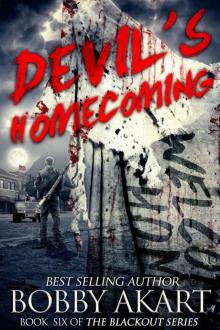 The Blackout Series (Book 6): Devil's Homecoming
The Blackout Series (Book 6): Devil's Homecoming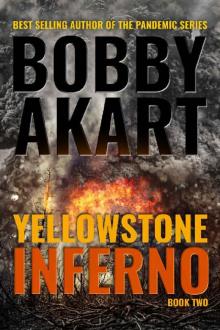 Yellowstone: Inferno: A Post-Apocalyptic Survival Thriller (The Yellowstone Series Book 2)
Yellowstone: Inferno: A Post-Apocalyptic Survival Thriller (The Yellowstone Series Book 2)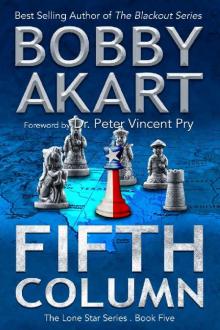 Fifth Column: Post Apocalyptic EMP Survival Fiction (The Lone Star Series Book 5)
Fifth Column: Post Apocalyptic EMP Survival Fiction (The Lone Star Series Book 5)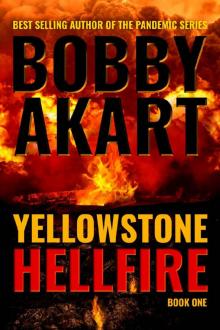 Yellowstone: Hellfire: A Post-Apocalyptic Survival Thriller (The Yellowstone Series Book 1)
Yellowstone: Hellfire: A Post-Apocalyptic Survival Thriller (The Yellowstone Series Book 1)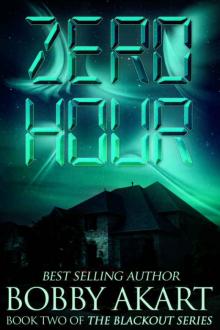 The Blackout Series (Book 2): Zero Hour
The Blackout Series (Book 2): Zero Hour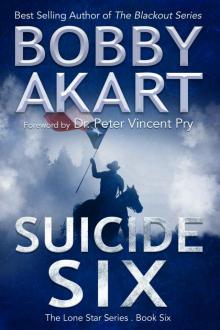 Suicide Six: Post Apocalyptic EMP Survival Fiction (The Lone Star Series Book 6)
Suicide Six: Post Apocalyptic EMP Survival Fiction (The Lone Star Series Book 6)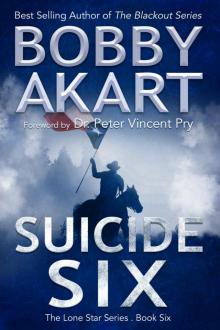 Suicide Six_Post Apocalyptic EMP Survival Fiction
Suicide Six_Post Apocalyptic EMP Survival Fiction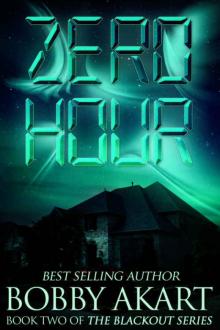 Zero Hour: A Post-Apocalyptic EMP Survival Fiction Series (The Blackout Series Book 2)
Zero Hour: A Post-Apocalyptic EMP Survival Fiction Series (The Blackout Series Book 2)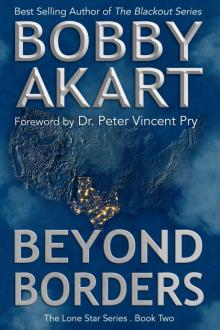 Beyond Borders_Post Apocalyptic EMP Survival Fiction
Beyond Borders_Post Apocalyptic EMP Survival Fiction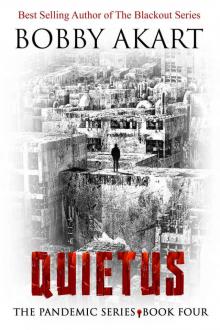 Pandemic: Quietus: A Post-Apocalyptic Dystopian Fiction Series (The Pandemic Series Book 4)
Pandemic: Quietus: A Post-Apocalyptic Dystopian Fiction Series (The Pandemic Series Book 4)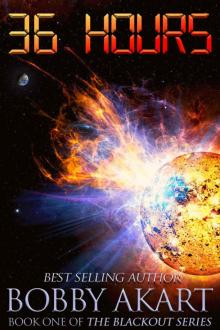 36 Hours: A Post-Apocalyptic EMP Survival Fiction Series
36 Hours: A Post-Apocalyptic EMP Survival Fiction Series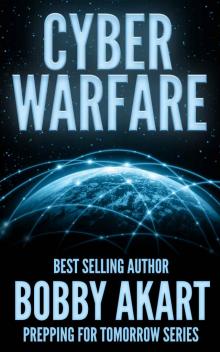 Cyber Warfare
Cyber Warfare